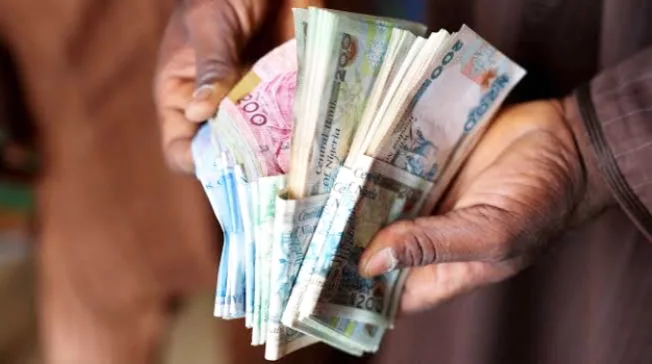Financial and economic analysts have urged the Federal Government to ramp up crude oil production to improve liquidity in the country’s foreign exchange market and help stabilise the naira.
In separate telephone chats with Sunday Punch on Saturday, the analysts claimed that increased oil output was a low hanging fruit for the government to tackle the country’s lingering forex scarcity.
The local currency depreciated by 154.2 per cent at the official forex window between when the Central Bank of Nigeria harmonised segments of the forex market in June 2023 and Friday, January 26.
The Group Managing Director of Cowry Asset Management Company, Johnson Chukwu, said the Federal Government needed to urgently increase crude oil production to bring in dollars and ease the pressure on the local currency.
“The country’s borrowing capacity is being constrained now. If Nigeria had more borrowing capacity, I would have said we should go to the Eurobond market and raise $10bn with some years of moratorium and maybe 10 years maturity. We could have used it to clear the rears of unmet demand.
“But as it stands today, that window is narrow because we do not have the headroom for significant borrowing from the Eurobond market. I think the short route for now within our country is to improve on crude production. That is the surest way to stabilise the naira,” he enunciated.
The naira was exchanged for 1056.88/$ at Nigerian Foreign Exchange Market on Friday, compared to 887.39/$ in the previous day, according to data obtained from the CBN website.
The naira traded at 415.76/$ at the NFEM before the apex bank unified the different segments of the forex on June 14, 2023.
The local currency weakened 0.71 per cent to 1,420/$ at the alternative forex market on Friday.
The country has been struggling with lingering forex scarcity due to a significant drop in its crude oil output, which dipped to 900,000 barrels per day in August last year, on the back of oil theft in the Niger Delta, where most production takes place.
Meanwhile, Nigeria’s oil production rose to 1.4bpd in December, according to the Organisation of Exporting Countries.
The Head of Strategy at the Lagos Business School, Prof Olawale Ajai, noted that though there was no magic bullet to fixing the country’s forex challenges, ramping oil production would help stabilise the local currency.
“The government is trying to raise forex through various means to meet existing obligations. But the level of speculation is still very high. People are hedging with forex. It is a confidence thing. That is a very fragile thing to do.
“All the political distractions, insecurity and ethnic clashes are fuelling the lack of confidence. The first thing the government should do is to master the political management of the country.
“Also, we need to urgently increase the production of crude, because if the government can earn more dollars from an increased daily production, then people can see the money coming in,” he stated.
Ajai advised the Federal Government to leverage the country’s huge diaspora funds to ease the pressure on the local currency.
“What is happening now is that people are not using official channels to bring diaspora funds. The government should put in place some mechanisms to encourage diaspora remittances to come in through the official channels, therefore, making more forex available. That may also assuage the lack of confidence,” he asserted.
According to Ajai, the government also needs to be more transparent in its dealings, especially in terms of the country foreign reserves, oil production and petroleum products subsidy, in order to boost investors’ confidence.
For the Chief Executive Officer of BIC Consultancy Services Limited, Dr Boniface Chizea, who is an economist, improved oil production would bolster the country’s economy.
“If we are able to produce more oil and sell it, that will help stabilise the naira. And the crude supply to Dangote should not be included in our OPEC quota, because that is local,” he averred.
The CBN Governor, Olayemi Cardoso, while speaking at the Nigerian Economic Summit Group’s 2024 macroeconomic outlook on Wednesday, claimed that the naira was undervalued.
He noted that the apex bank was exploring combined coordinated measures with the fiscal authority to accelerate genuine price discovery.
